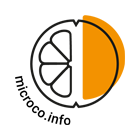You are here:
Coenzyme Q10
Coenzyme Q10 is a fat-soluble compound from the substance class of ubiquinones. Coenzyme Q10 is indispensable for metabolism. It is involved in energy metabolism as a component of cells in the mitochondria. It plays an essential role in energy production in the form of ATP and, as an antioxidant, can protect cells from oxidative damage caused by so-called "free radicals". Tissues with a high energy requirement such as the heart, kidneys, liver and muscles have high concentrations of coenzyme Q10.
Coenzyme Q10 is not an essential nutrient, as this substance can be produced by the healthy organism itself in sufficient quantities. Coenzyme Q10 is also naturally present in food. The estimated intake through the usual diet is on average 3 - 6 milligrams (mg) per day. First and foremost, the consumption of meat contributes to intake, but fish, nuts and some oils are also very good sources of coenzyme Q10. Fruit, vegetables, cereals and dairy products, on the other hand, only have low concentrations.
For the healthy population, there are no indications of an undersupply of coenzyme Q10. Coenzyme Q10 is nevertheless used in a large number of food supplements and is partly advertised with positive health claims for strengthening the immune system or for a strong heart. Since there is no scientific evidence for a health benefit but indications of possible negative effects of the additional intake of coenzyme Q10, an additional intake of coenzyme Q10 via food supplements is generally not necessary or even associated with health risks. In part, however, there is a lack of data for a reliable health risk assessment, for example on the health effects of Q10 in pregnant and breastfeeding women as well as in children and adolescents. Therefore, these groups of people should not take food supplements with daily doses of 100 mg coenzyme Q10 or more.
There is also uncertainty as to whether clinically relevant interactions between coenzyme Q10 and medicines to lower blood pressure or inhibit coagulation (anticoagulants of the coumarin type) can occur. Therefore, the BfR recommends that people taking such medicines seek medical advice before taking Q10.
6/9/2023
